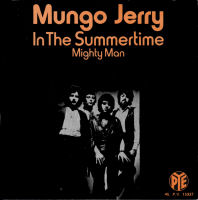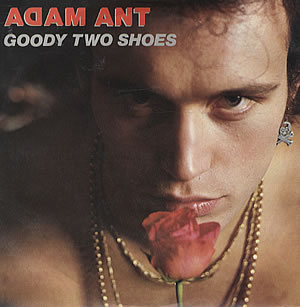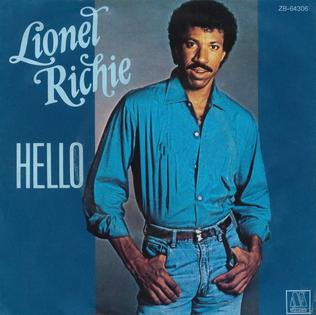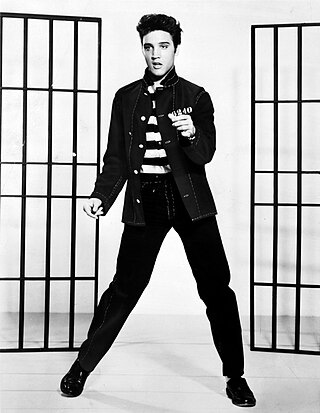Related Research Articles

"Come On Eileen" is a song by the English group Dexys Midnight Runners, released in the United Kingdom in June 1982 as a single from their second studio album Too-Rye-Ay. It reached number one in the United States and was their second number one hit in the UK, following 1980's "Geno". The song was produced by Clive Langer and Alan Winstanley and was initially claimed to be written by Kevin Rowland, Jim Paterson and Billy Adams, although Rowland later stated that the essence of the tune should be attributed to Kevin Archer.

"The Lion Sleeps Tonight" is a song originally written and recorded by Solomon Linda under the title "Mbube" for the South African Gallo Record Company in 1939. Linda's original was written in Zulu, while the English version's lyrics were written by George David Weiss.

"Lost in Love" is a song recorded by the British/Australian soft rock duo Air Supply. The song was written by group member Graham Russell. The original version of the song appeared on the Life Support album in 1979 and was released as a single in Australia, reaching number 13 on the Kent Music Report. The group re-recorded the song for the album of the same name in 1980 and this version was released as a single in the US, reaching number 3 on the Billboard Hot 100.

"I'm Gonna Make You Love Me" is a soul song most popularly released as a joint single performed by Diana Ross & the Supremes and The Temptations for the Motown label. This version peaked for two weeks at No. 2 on the Hot 100 in the United States, selling 900,000 copies in its first two weeks, and at No. 3 on the UK Singles Chart in January 1969.
"Always on My Mind" is a ballad written by Wayne Carson, Johnny Christopher, and Mark James, first recorded by Brenda Lee, and first released by Gwen McCrae in March 1972. Lee's version was released three months later in June 1972. The song has been a crossover hit, charting in both the country and western and pop categories. Elvis Presley's recording was the first commercially successful version of the song.
Cashbox, also known as Cash Box, was an American music industry trade magazine, originally published weekly from July 1942 to November 1996. Ten years after its dissolution, it was revived and continues as Cashbox Magazine, an online magazine with weekly charts and occasional special print issues. In addition to the music industry, the magazine covered the amusement arcade industry, including jukebox machines and arcade games.

"Rock Me Amadeus" is a song recorded by Austrian musician Falco, for his third studio album, Falco 3 (1985). The single was made available for physical sale in 1985 in German-speaking Europe, through A&M. "Rock Me Amadeus" was written by Falco along with Dutch music producers Bolland & Bolland. To date, the single is the only German language song to peak at number one of the Billboard Hot 100, which it did on 29 March 1986.

"In the Summertime", released in 1970, is the debut single by British rock band Mungo Jerry. It reached number one in charts around the world, including seven weeks on the UK Singles Chart, two weeks on one of the Canadian charts, and number three on the Billboard Hot 100 singles chart in the US. It became one of the best-selling singles of all-time, eventually selling 30 million copies. Written and composed by the band's lead singer, Ray Dorset, while working in a lab for Timex, the lyrics of the song celebrate the carefree days of summer. The track was included on the second album by the band, Electronically Tested, issued in March 1971.

"River Deep – Mountain High" is a song by Ike & Tina Turner released on Philles Records as the title track to their 1966 studio album. Produced by Phil Spector and written by Spector, Jeff Barry and Ellie Greenwich. Rolling Stone ranked "River Deep – Mountain High" No. 33 on their list of the 500 Greatest Songs of All Time. NME ranked it No. 37 on their list of the 500 Greatest Songs of All Time. The Rock and Roll Hall of Fame added it to the list of the 500 Songs That Shaped Rock and Roll. The song was inducted into the Grammy Hall of Fame in 1999.

"Goody Two Shoes" is the debut solo single by Adam Ant, released on 7 May 1982. It became Ant's third overall number one in the UK and his highest charting song in the US, where it peaked at number 12.

"Smoke Gets in Your Eyes" is a show tune written by American composer Jerome Kern and lyricist Otto Harbach for the 1933 musical Roberta. The song was sung in the Broadway show by Tamara Drasin. Its first recorded performance was by Gertrude Niesen, who recorded the song with orchestral direction from Ray Sinatra, Frank Sinatra's second cousin, on October 13, 1933. Niesen's recording of the song was released by Victor, with the B-side, "Jealousy", featuring Isham Jones and his Orchestra.

"How Am I Supposed to Live Without You" is a song written in 1982 by Doug James and Michael Bolton. The ballad has been recorded by many artists around the world, in several languages, most notably by Bolton himself, becoming something of a modern pop standard. Instrumental versions of the song have been recorded featuring variously the piano, guitar, saxophone, pan flute, steel drum, and music box.

"Hello" is a song by American singer and songwriter Lionel Richie. Taken as the third single from his second solo album, Can't Slow Down (1983), the song was released in 1984 and reached number one on three Billboard music charts: the pop chart, the R&B chart, and the Adult Contemporary chart. The song also went to number one on the UK Singles Chart for six weeks.

"What a Fool Believes" is a song written by Michael McDonald and Kenny Loggins. The best-known version was recorded by the Doobie Brothers for their 1978 album Minute by Minute. Debuting at number 73 on January 20, 1979, the single reached number one on the Billboard Hot 100 on April 14, 1979, for one week. The song received Grammy Awards in 1980 for both Song of the Year and Record of the Year.
"Love Letters in the Sand" is a popular song first published in 1931. The music was written by J. Fred Coots and the lyrics by Nick Kenny and Charles Kenny. Ted Black and His Orchestra, with vocalist Tom Brown, had the first major hit recording of the song in 1931. Pat Boone had a major hit with the song in 1957.
"Don't Leave Me This Way" is a song written by Kenneth Gamble, Leon Huff and Cary Gilbert. It was originally released in 1975 by Harold Melvin & the Blue Notes featuring Teddy Pendergrass, an act signed to Gamble & Huff's Philadelphia International label. "Don't Leave Me This Way" was subsequently covered by American singer Thelma Houston in 1976 and British duo the Communards in 1986, with both versions achieving commercial success.

"Under the Boardwalk" is a pop song written by Kenny Young and Arthur Resnick and recorded by the Drifters in 1964. It charted at number four on the Billboard Hot 100 chart on August 22, 1964. The song has since been covered by many other artists, with versions by Bette Midler, Sam & Dave, the Tom Tom Club, the Rolling Stones, Billy Joe Royal, The Beach Boys, Bruce Willis, Bad Boys Blue, John Mellencamp and Lynn Anderson all charting in the United States or overseas. The song ranked number 487 on Rolling Stone's list of The 500 Greatest Songs of All Time in 2004 and number 489 in 2010.

The singles discography of Elvis Presley began in 1954 with the release of his first commercial single, "That's All Right". Following his regional success with Sun Records, Presley was signed to RCA Victor on November 20, 1955. Presley's first single with RCA, "Heartbreak Hotel", was a worldwide hit, reaching the No. 1 position in four countries and the top 10 in many other countries. Other hit singles from the 1950s include "Hound Dog", "Don't Be Cruel", "Love Me Tender", Too Much", "All Shook Up", "(Let Me Be Your) Teddy Bear", "Jailhouse Rock", "Don't", "Hard Headed Woman" and "A Big Hunk o' Love". On March 24, 1958, Presley entered the United States Army at Memphis, Tennessee, and was stationed in Germany. He left active duty on March 5, 1960.